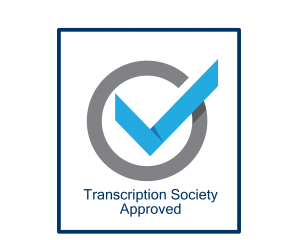It has recently been reported in Private Eye and the Evening Standard that lecturers at the University of Exeter have threatened industrial action over potential plans by the university to utilise their lectures as audio and video recordings and to use them as provision for online teaching.
Sensing the clear commercial opportunity that presents itself here of making lots of staff redundant and reducing the number of face to face contacts with academic staff, the lecturers and academics are looking to take action to prevent this.
Clearly a cynic could suggest that a university in need of a bit of extra cash could make a number of staff redundant and use their recorded lectures to deliver courses for a period of say 3 years before taking on additional staff, recording their lectures and repeating the same exercise again. In fact, this may be the future at some cash-strapped institutions, unless the unions can take steps now to ensure that universities do not attempt to cut staff and use existing recordings to operate courses..
The Union Strikes Back
Dr Grady, the University and College Union (UCU) General Secretary, told the Evening Standard that ‘we [the UCU] are putting employers on notice that staff are prepared to take action if recorded lectures are reused without proper licensing agreements. Every recorded teaching session is the work of that member of staff and only they can agree how it should be used.’
Ownership of Lectures
So what is the usual position so far as the ownership of the audio of any academic lectures lecturers undertake?
This is usually quite simple in our understanding, although you should of course seek legal advice. There should be some provision somewhere in your contract of employment with the academic institution who has engaged you and this should state fairly clearly who and what intellectual property and lecture capture belongs to the employer and what belongs to the employee. If you are a lecturer you probably want to make sure, going forwards, if you negotiate or apply for any jobs that you retain ownership of your own academic lectures, seminars and workshops, together with any material you may create.
Whilst the last point is probably beyond most academics as the universities will seek to own any materials put together, you may well find a good number of employment contracts for academics do not specifically mention the intellectual property in the audio recordings of any lectures, presentations, conferences or seminars they might give.
Check the Small Print
If there is no specific term in the contract of employment then presumably any challenge by the University of Exeter staff will need to be done on an implied term, and looking at the Private Eye article it seems they are claiming that when the academics are standing up and presenting their lectures etc, they are performing, and as performers their performances are protected and belong to them. The same applies to a Robbie Williams concert; if someone records it on their smart phone the copyright of the Robbie Williams concert would belong to Robbie Williams and his promoters and not to the person recording it on their smart phone.
So presumably if the university has not specifically included a provision to say that any lectures a lecturer gives belong to the university and not the lecturers, then the lecturers do have a case to say that the copyright of their audio recordings has never been transferred to their employer, and there is no specific term indicating this.
Sack the Staff and Use Recorded Lectures – a Race to the Bottom
It seems to make good sense to universities to try and save substantial amounts of money by ditching large numbers of staff, and instead using online lectures written and presented some years before by staff who have now been sacked. No doubt this will help to keep the universities afloat, but it is going to enrage their workforce, reduce the quality of the courses offered and finish up a heck of a lot of internal strife and dissent.
Storm in a Teacup?
We suspect, as graduates ourselves, that for some courses this really is a storm in a teacup. For example how would an LLB Law course possibly use recorded lectures from more than a year ago? The law changes every six months and a good proportion of the content may well be out of date in twelve months time.
Transcription of Lectures – Is It Common?
Although we do offer this service for some universities to make lectures more accessible for those with additional needs, we rarely get asked to transcribe lectures or seminars – most of our work is concentrated on academic research interviews and group discussions. We do get requests for subtitling fairly regularly – for example (during the pandemic) we produced SRT files (subtitling) for a series of lectures which were being shared online.
We will of course keep our website readers informed if we do start seeing a large uptake in universities placing bulk orders for transcription of academic lectures and seminars..









